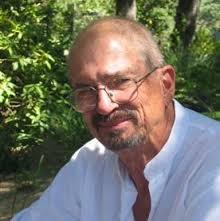 I was diagnosed with lung cancer in 1998, age 65 – I was still working at the time as a product development scientist for Raychem Corp in Menlo Park, CA. I had a BA degree in Chemistry from Harvard and MS and ScD degrees from MIT in Materials Science and Engineering and had worked for over 4 decades for various companies doing research and developing products.
I was diagnosed with lung cancer in 1998, age 65 – I was still working at the time as a product development scientist for Raychem Corp in Menlo Park, CA. I had a BA degree in Chemistry from Harvard and MS and ScD degrees from MIT in Materials Science and Engineering and had worked for over 4 decades for various companies doing research and developing products.
Before diagnosis I wasn’t feeling well, had shortness of breath, a persistent cough, had lost 20 pounds, and was tired and cranky most of the time. I knew that something was wrong but thought it only due to over work, excessive overseas travel, and loss of sleep. My wife and a very good friend though knew differently and insisted I see a doctor. When I heard the diagnosis (stage IV NSCLC) and the prognosis (10 months to live), I was shocked and stunned. However my survival instincts took over first – that afternoon I retired from Raychem and “got to work” on my cancer.
The first step was to start learning everything I could about the disease,
its history, epidemiology, and its treatments.
What my doctors had told me was true – I was likely to die within the year. But since I had been an experimenter all my professional life, I interviewed several doctors, got second opinions, and chose the oncologist who seemed most open to trying things even though they may not have been on protocol. I even got a thoracic surgeon to agree that if I could reduce my major tumor burden by 50%, he would consider doing an operation to remove it.
So I did several months of an intensive chemo doublet, reduced my tumor by 50%, had a lobectomy to remove the major tumor, and then did many more months of different chemo regimes to get rid of 19 small tumors that had arisen as a consequence of the operation. These new smaller tumors were reduced to only 4 small ones, and then I went on a compassionate use trial with a very new EGFR TKI drug, Iressa. I added daily Celebrex, a Cox-2 NSAID drug, for anti-inflammatory effect. The combination of drugs was affirmed as a proper course for this disease many years later in several clinical trials.
All during these first few years I continued to study, using the Internet, various libraries and books, and accessing the web sites of the drug companies, etc. I even attended ASCO, the very large national meeting for oncology, and listened in on the lung cancer sessions and got to know some of the leading doctors in the field. I was not satisfied with the conventional support groups so started my own one with men friends and relatives – I didn’t need support groups for cancer information (I got that on my own).
I wanted spiritual, social and psychological support.
I obsessively kept records of everything; journals, reports of doctor visits, spreadsheets of medications, scan results, etc. I often knew more about my case than my doctors.
Once I was safely into a steady situation (not cured nor in remission but a chronic disease), I started speaking out, meeting with others, giving talks about my story, and I even started a web site company and made a 50 minute video about my journey. Later I joined and was chair of the Thoracic Oncology Cabinet at UCSF, and then co-founder of the Bonnie J. Addario Lung Cancer Foundation where I am still the Head of the Science Advisory Board helping to choose research projects in lung cancer to fund. I have individually talked with and tried to help numerous newly diagnosed patients with lung cancer over the past 10 years or more.
So where does all this leave me now 16 years after my initial doleful diagnosis and at the ripe old age of 80? I am now fully retired, having done several start up projects over the past 10 years. I do some volunteer work, mostly for lung cancer but also for civic programs and agencies and a few non-profits. I felt so confident that I could continue to survive that I replaced one hip and both knees a few years ago and am now playing tennis again and walking miles every day. My lung cancer journey certainly has changed me. It has not only given me confidence and a sense of control over my wellbeing, but also allowed me to face the certainty of my ultimate death and to better accept the inevitable flow of life.
I have been given so much by others and hopefully
have been able to give some back to them.
I will continue to work at these tasks with others as long as I can – I hope that others can be as lucky as I have been.
Watch a video about Wells’ journey:
